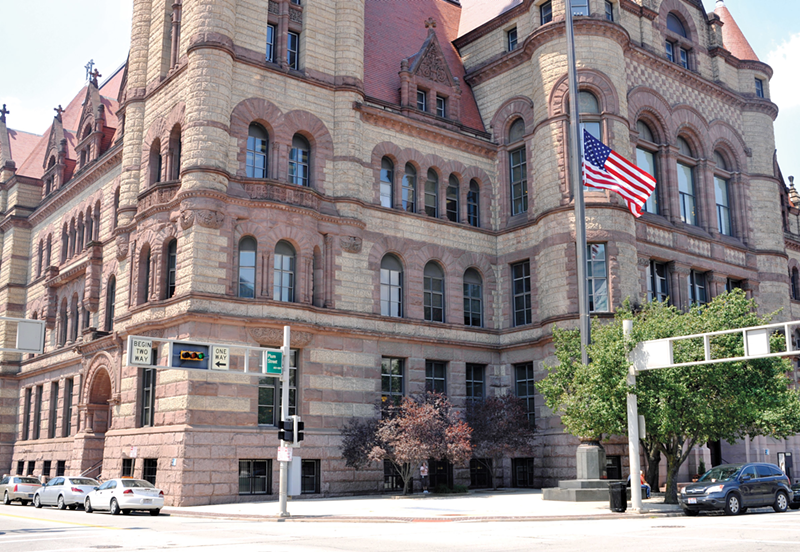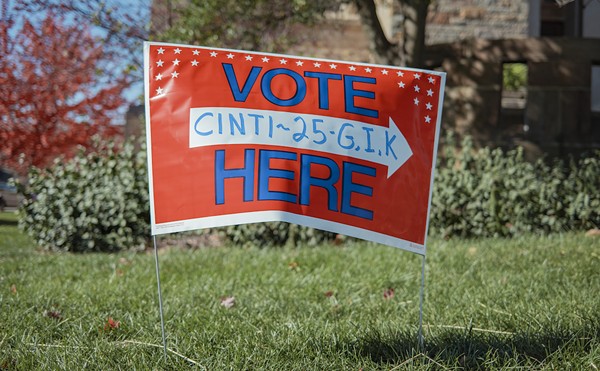City Council approved an operating budget Thursday that raises taxes and cuts several city services in fiscal year 2014, but the plan avoids laying off cops and firefighters.
Democratic council members Roxanne Qualls, Chris Seelbach, Yvette Simpson, Pam Thomas and Wendell Young supported the budget, and Democrats P.G. Sittenfeld and Laure Quinlivan, independent Chris Smitherman and Republican Charlie Winburn voted in opposition.
As a result of the budget, 67 city employees will lose their jobs.
Human services funding, which goes toward programs that aid the city's homeless and poor, is hit particularly hard with a cut of $515,000 in the final budget plan. The reduced funding leaves about $1.1 million for human services agencies.
Josh Spring, executive director of the Greater Cincinnati Homeless Coalition, says the latest cuts add to what's been a decade of cuts for human services funding. Originally, human services funding made up about 1.5 percent of the city's operating budget. With the latest changes, human services funding makes up about 0.3 percent of the budget.
"The additional cuts are deep and will negatively affect many lives now and in the future," Spring says. "It's important City Council work to reduce these cuts and citizens support that in ensuing months."
The budget also cuts parks funding by $1 million — about $200,000 lower than originally proposed by City Manager Milton Dohoney.
The budget further trims several city services, including the city's health department, law department and recreation department.
Arts funding and subsidies for "heritage" events, such as parades, are completely eliminated.
Funding for several outside agencies is also being reduced or eliminated: the Port Authority, the African-American Chamber of Commerce, the Cincinnati USA Regional Chamber of Commerce, the Center for Closing the Health Gap, the Greater Cincinnati Energy Alliance and the Greater Cincinnati and Northern Kentucky Film Commission.
The budget is partly balanced with higher revenues. The property tax is being hiked from 4.6 mills to 5.7 mills in fiscal year 2014, or about $94 for every $100,000 in property value. Water rates will also increase by 5.5 percent starting in 2014.
The budget also invokes fees for several city services: a $75 fee for accepted Community Reinvestment Area residential tax abatement applications, a $25 late fee for late income tax filers, a $100 fee for fire plan reviews, an unspecified hazardous material cleanup fee, a 50-cent hike for admission into the Krohn Conservatory and an unspecified special events fee for city resources used for special events.
At a council meeting Thursday, Quinlivan, who voted against the budget, criticized other council members for not pursuing changes that would structurally balance the budget.
"I don't believe anybody's going to really address this problem," she said.
Quinlivan has long been an advocate for "rightsizing" the city's police and fire departments, which she says have scaled "out of control."
Seelbach defended the plan, claiming it will keep the city's books balanced while the city government waits for higher revenues from a growing local economy.
Still, the city has not passed a structurally balanced budget since 2001, which critics like Quinlivan say is irresponsible.
The public safety layoffs were avoided despite months of threats from city officials that cops and firefighters would have to be laid off if the city didn't semi-privatize its parking assets for $92 million upfront and annual payments afterward. That plan is now held up in court, and public safety layoffs were avoided anyway.
But the layoffs were avoided with steeper cuts in other areas of the budget, including reduced funding for outside agencies and a requirement of 10 furlough days for some city employees and council members. The changes also increased estimates for incoming revenues with $1 million that is supposed to be paid back to the city's tax increment financing fund.
Multiple council members blamed the budget problems on the state government, which has cut local government funding by about 50 percent during Gov. John Kasich's time in office ("Enemy of the State," issue of March 20). For Cincinnati, the cuts resulted in $21 million less for fiscal year 2014, or 60 percent of the $35 million budget gap originally estimated for the year.






